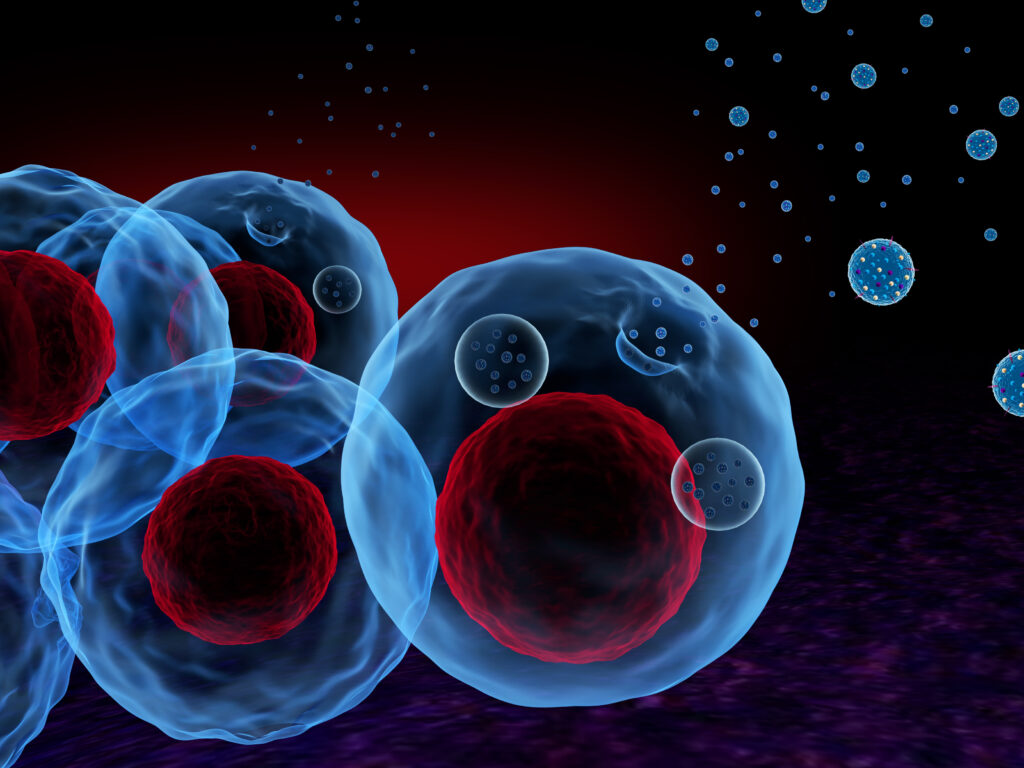Chemotherapy is a life-saving treatment for many cancer patients, but it comes with significant side effects, particularly for women regarding their fertility. One of the most concerning effects of chemotherapy is its detrimental impact on ovarian function, leading to the depletion of follicular reserves and ultimately ovarian failure (OF). This condition not only jeopardizes a woman’s ability to conceive but also contributes to estrogen deficiency-related complications, affecting overall health and quality of life.
Current options for fertility preservation, such as oocyte or ovarian cortex cryopreservation, present numerous technical challenges that can hinder their effective implementation. Therefore, researchers are actively seeking innovative strategies to protect ovarian function during chemotherapy. A promising area of research involves the use of exosomes—nano-sized extracellular vesicles derived from cells that have shown potential in regenerative medicine.
A recent study conducted by Nehal M Elsherbiny and colleagues explored the beneficial effects of mesenchymal stem cell (MSC)-derived exosomes in a model of chemotherapy-induced ovarian failure. The researchers designed an experiment using female albino rats, which were divided into four groups: a control group, an OF group, an OF group treated with MSCs-derived exosomes, and two additional groups treated with the mTOR inhibitor Rapamycin and the PI3K/AKT inhibitor Quercetin, respectively.
The study aimed to assess the extent of follicular development through histopathological and immunohistochemical evaluations while hormonal assays were used to evaluate ovarian function. Importantly, the PI3K/Akt/mTOR signaling pathway, which plays a crucial role in ovarian follicular activation, was also investigated.
The findings revealed that administration of MSCs-derived exosomes to the rats with ovarian failure resulted in remarkable restoration of serum hormonal levels and preservation of primordial follicles and oocytes. The treatment effectively suppressed the ovarian PI3K/AKT pathway and its downstream effectors, including mTOR and FOXO3. Additionally, the MSCs-derived exosome therapy modulated specific microRNAs targeting this pathway and decreased the expression of ovarian apoptotic markers such as BAX and BCl2. Furthermore, it increased the expression of the proliferation marker Ki67.
These results validate the effectiveness of MSCs-derived exosomes in preventing ovarian insufficiency induced by chemotherapy. The study suggests that concurrent treatment with MSCs-derived exosomes during chemotherapy could significantly preserve ovarian function and fertility by suppressing the PI3K/Akt pathway, preventing excessive follicular activation, maintaining normal ovarian cellular proliferation, and inhibiting apoptosis of granulosa cells.
This promising research opens new avenues for fertility preservation in women undergoing chemotherapy, highlighting the potential of MSCs-derived exosomes as a therapeutic strategy to protect ovarian function. As the medical community continues to explore these innovative approaches, the hope is to offer women undergoing cancer treatment more options to preserve their fertility and maintain their quality of life.
The research team behind this study includes Nehal M Elsherbiny, Mohamed S Abdel-Maksoud, Kousalya Prabahar, Zuhair M Mohammedsaleh, Omnia A M Badr, Arigue A Dessouky, Hoda A Salem, Omnia A Refadah, Ayman Samir Farid, Ashraf A Shamaa, and Nesrine Ebrahim, who collectively contribute to advancing our understanding of fertility preservation in the context of cancer treatment.


